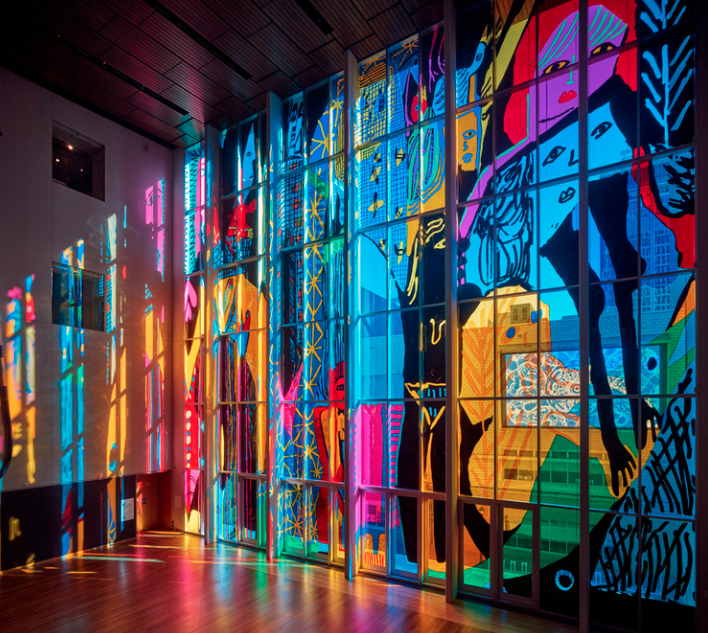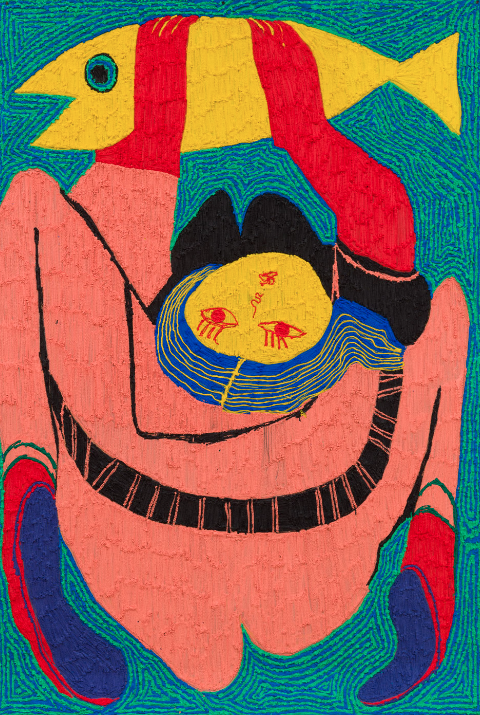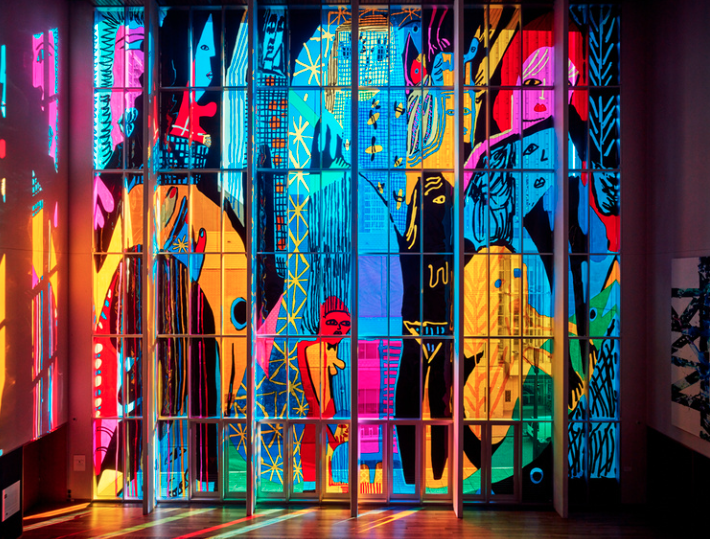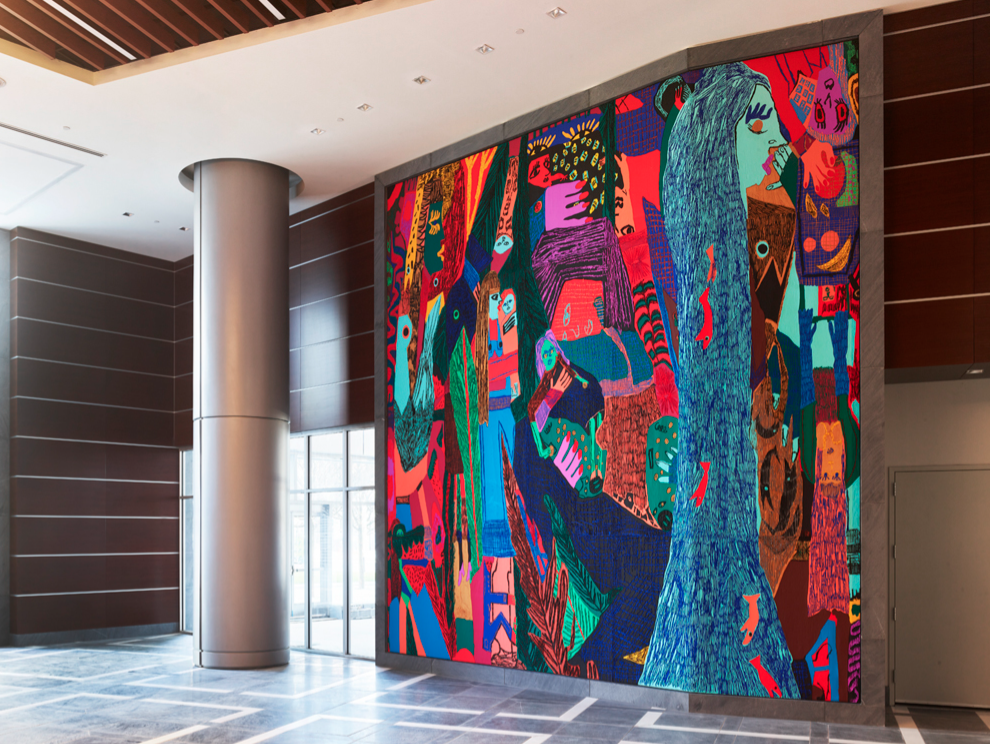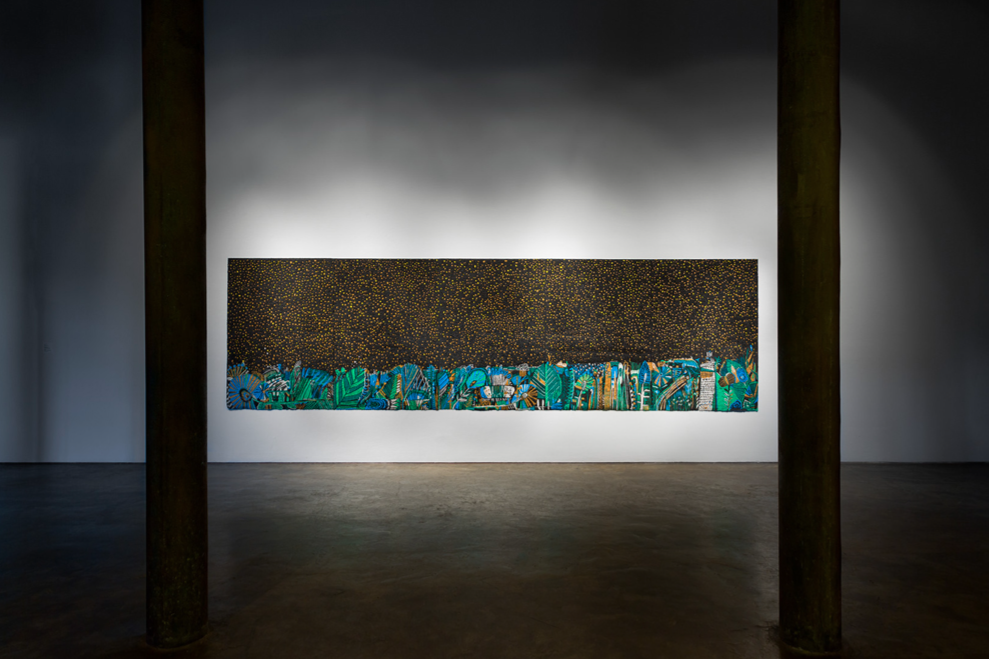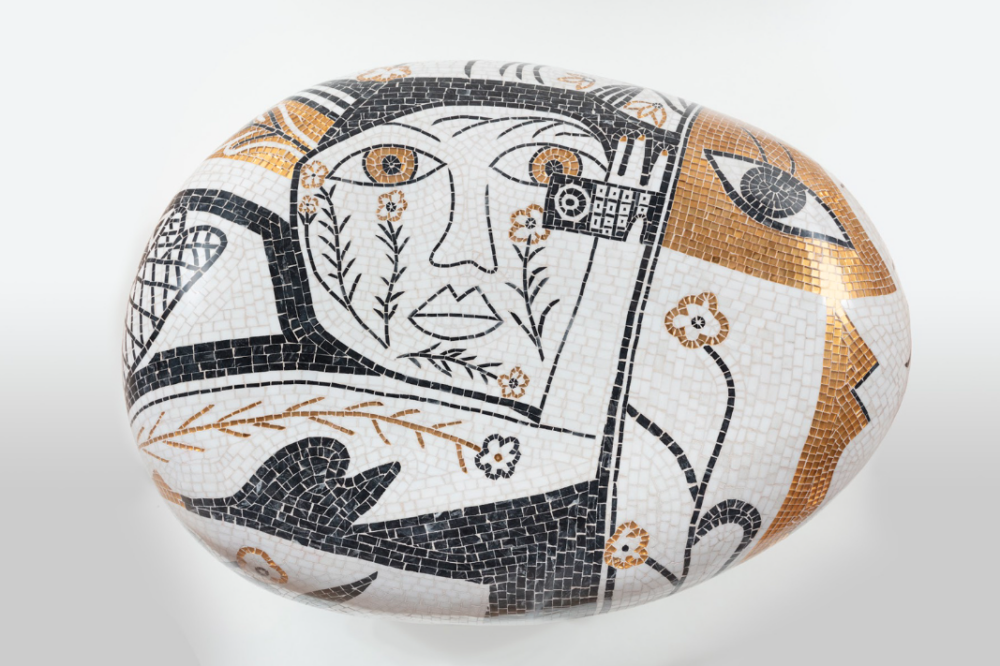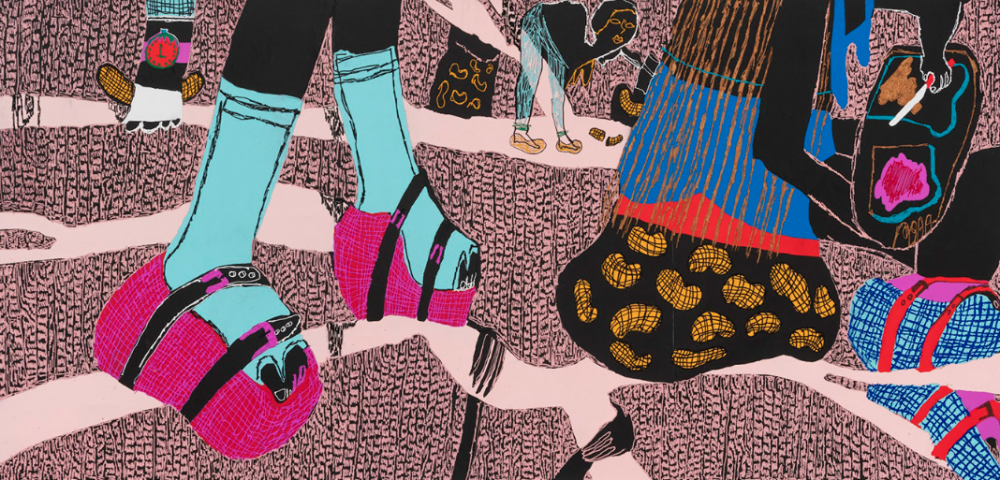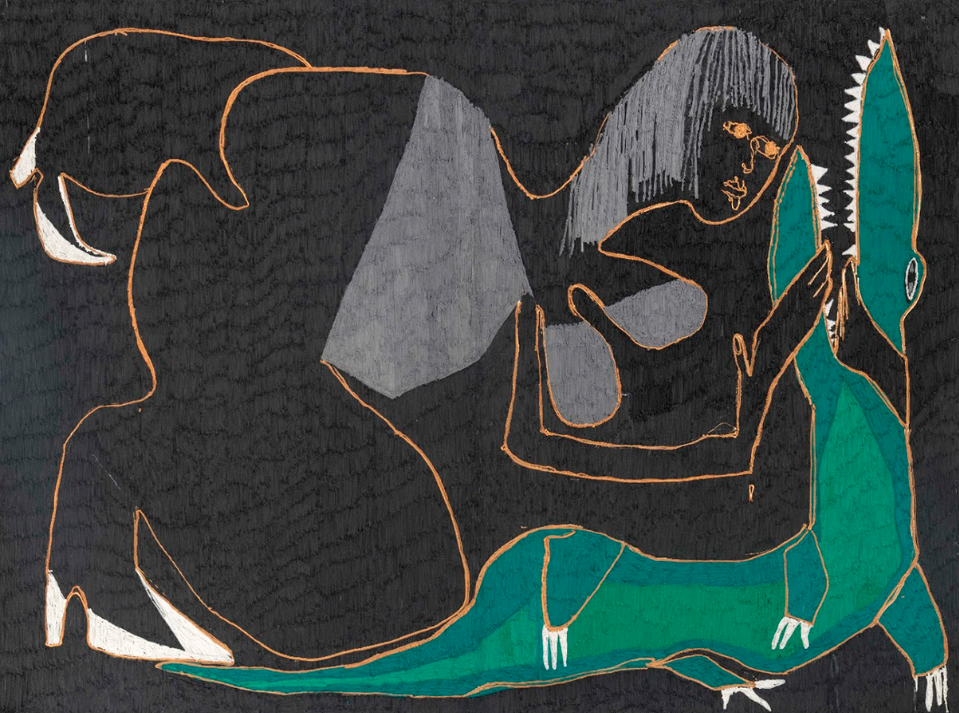“We were intrigued by Summer Wheat’s process and use of material, pushing the boundaries of acrylic paint to create works that are compelling and visceral.” – Jurors Ian Alteveer, Associate Curator, Department of Modern and Contemporary Art, The Metropolitan Museum of Art and Amanda Hunt, Assistant Curator, The Studio Museum in Harlem
Summer Wheat (b. 1977, Oklahoma City, OK) is known for her vibrant paintings, multifaceted sculptures, and immersive installations that weave together the history of materiality, figuration, and abstraction in both fine art and craft milieus. Each series engages individual and collective human experiences drawn from historical and contemporary sources, mediated through a variety of references ranging from ancient art and medieval tapestries, to etchings from the Renaissance, to modernist abstractions. Wheat’s work examines various manifestations of labor, leisure, commerce, and class through the depiction of numerous figures and archetypes such as farmers, hunters, beekeepers, gardeners, weavers, bankers, and movie stars. The artist’s densely populated “scapes” envision worlds where time seems to have collapsed and every person, regardless of social status, occupies a shared/equal space, in which both labor and leisure are paths to healing humanity. Using a tongue-in-cheek type of humor inspired by comic strips, Wheat subverts conventional hierarchical structures and stereotypes to create more expansive depictions of daily life throughout history.
For Wheat, labor functions as both a conceptual and formal connective thread that runs throughout her oeuvre. This relates to her labor-intensive process of making a painting, the term’s definition, as well as its historic visual representation. Wheat’s work often employs the visualization of labor as a tool to expose gender and class inequality. For example, in Swamp Hunters (2017), two women carry a large net filled with their game from the day—rabbits, turtles, boars, and a large bobcat. The women are bent over with the net thrown over their shoulders, the weight of the load is palpable in their tired expressions. In the background is a dense network of foliage that the women are traversing through, giving the viewer a sense of the difficult environment they must navigate to survive. Inspired by medieval tapestries and historical tableaux in which human figures often contend with the natural world, Wheat depicts the successful aftermath of the hunt rather than the battle. By omitting the violence of the kill, she conflates the traditional hunter and gatherer roles, giving them equal footing.
Summer Wheat is the recipient of the 2016 NADA New York Artadia Award.

